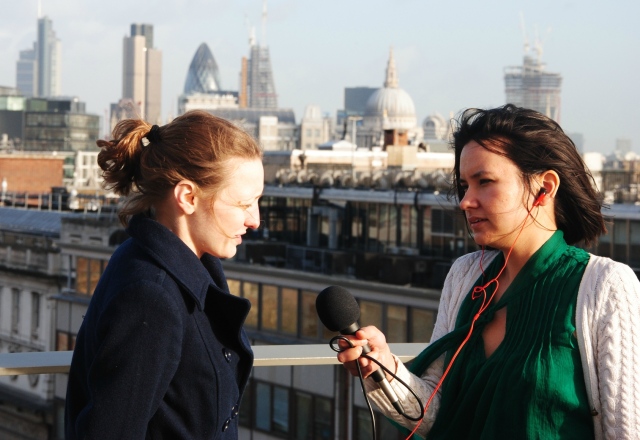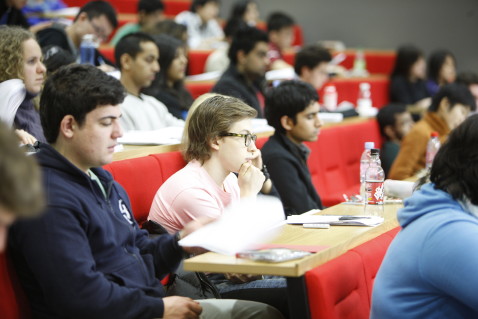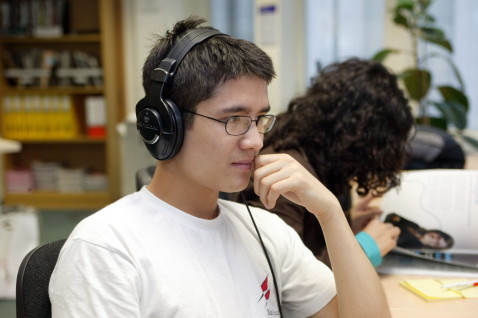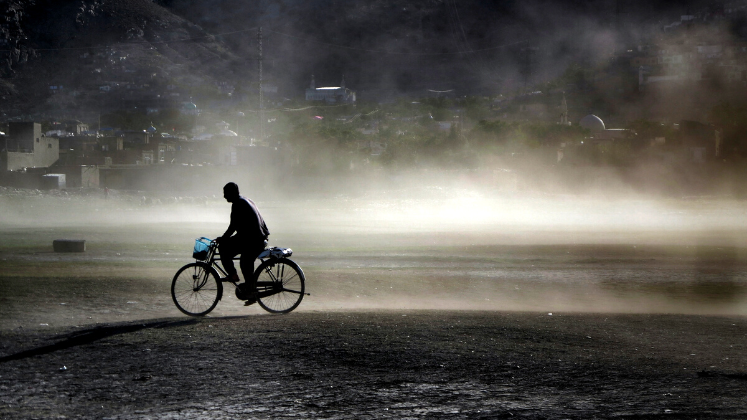National Podcast Day is 30th September and is a day dedicated to promoting podcasting worldwide through education and public engagement. Here, we explore three ways that academics can use podcasting to enhance their engagement with students and expand the reach of their work beyond academia.
 1. Podcasts give you a platform to push out your work
1. Podcasts give you a platform to push out your work
You’ve worked for years on your research project, but why only use academic journals to discuss your work? Behind paywalls and subscriptions, the public have little access to your ideas. Much has been written about how blogging and tweeting can vastly increase the number of people who will get to hear about your work, but podcasting has the potential to get your work across multiple online platforms.
With podcasting, academics and researchers have an exciting and dynamic platform at their disposal. For unfamiliar readers, podcasting in its simplest form is an audio recording (such as an interview or radio-style segment) that is disseminated through online platforms such as iTunes or Soundcloud. You may know popular podcasts such as This American Life, Radio Lab, and Answer Me This!, but now scholars are starting to use podcasting to share their own work. Be sure to check out the LSE Review of Books podcasts here. These are 30 minutes long and are professionally scripted and edited, but there’s lots you can do on your own.
To get you started, read our three-part guide to academic podcasting. Cheryl covers microphone techniques, balancing workloads, editing software, and knowing your audience.
 2. Podcasts ensure that your event lives on and reaches an international audience
2. Podcasts ensure that your event lives on and reaches an international audience
Disappointed that only three people came to your lecture on Bayesian economics? Don’t despair. Podcasting can be used to push out your events to a wide international audience who may not be able to attend in person and to listeners outside of academic spaces. Ask your university events team about podcasting your next event.
For some inspiration check out the LSE’s Public Lectures and Events homepage, which hosts a collection of podcasts and videos from recent events.
Your could also podcast your classroom lectures – especially introductory courses – using a sound recorder. When editing you could even add a few words to introduce yourself and the topic. Once you’re happy with the audio, share on social media platforms in tandem with relevant hashtags, and you can also share via newsletters out to your wider network.
 3. Podcasts brighten up student reading lists
3. Podcasts brighten up student reading lists
Do you notice that your students seem clueless when discussing the specifics of your carefully curated reading lists? They might just be craving a more diverse selection of content.
Alongside key readings, you could add in a podcast featuring academics or authors who draw out the most significant details of the topic. Try looking on publisher websites and at book launch events, as well as at discipline-specific podcasts. For example, our Feminism and Gender Studies podcast appeared on the reading list for the undergraduate final-year Advanced Option Feminism, Politics, and Social Change in Modern Britain, compiled by Dr. Laura Schwartz, Assistant Professor of Modern British History, at the University of Warwick.
The great thing about podcasting is that there are a very few limitations. The best way to find out what works for your and your research is to get started!
Listen to LSE Review of Books in Brazil: Politics, People, and Petroleum
In this episode, we head inland to the heart of the country’s political life: the capital of Brasília.
Authors from the LSE including Francisco Panizza (Senior Lecturer in Latin American Politics), Anthony Hall (Professor of Social Policy), Guy Michaels (Associate Professor of Economics) and Francesco Casselli (Norman Sosnow Professor of Economics), talk to LSE Review of Books about left-of-centre politics and social development in the country.
We also find out whether Brazil proves or disproves the “oil curse” theory.
Other guests: André Vitor Singer (Former Press Secretary for the Lula presidency), Armando Simões (Ministry of Social Development and Fight Against Hunger in Brasilia), Antonio Claret Campos Filho (Secretary of State of Social Assistance and Human Rights: Rio de Janeiro State), Marcos Mendes (Legislative Consultant, Brazilian Senate), Fernando Postali and Marislei Nishijima (Department of Economics, University of São Paulo).








2 Comments